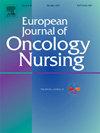“每一次失去都给我留下了印记”:一项探索儿科肿瘤科护士临终关怀经验的理论研究
IF 2.7
3区 医学
Q1 NURSING
引用次数: 0
摘要
目的本研究旨在建立一个解释框架,探讨儿科肿瘤科护士在提供临终关怀时的经历和情感挑战。方法本定性研究采用扎根理论方法。在数据收集过程中,14名儿科肿瘤科护士参加了半结构化访谈。数据收集与分析同时进行。数据分析采用开放、轴向和选择性编码技术。结果确定了四个主要类别和10个小类别,以构建基础理论:过渡到生命末期阶段,临终关怀过程的管理,死亡时刻的挑战,以及参与护理对护士的影响。这些类别包括护士在整个临终关怀过程中所经历的情感、任务相关和关系动态。该研究发展了一个有根据的理论来指导临终关怀和损失经历如何影响儿科肿瘤护士,提供了他们的情绪和经历的时间顺序概述。参与者强调,每一次损失都会给他们留下印记,因为他们与孩子们建立了联系。护士需要支持发展他们的实践技能和能力,以应对临终关怀和面对死亡的挑战性。本文章由计算机程序翻译,如有差异,请以英文原文为准。
‘Each loss left an imprint on me’: A grounded theory study exploring end-of-life care experiences in pediatric oncology nurses
Purpose
This study aimed to develop an explanatory framework to examine pediatric oncology nurses' experiences and emotional challenges in providing end-of-life care.
Method
This qualitative study employed a grounded theory methodology. During data collection, 14 pediatric oncology nurses participated in semi-structured interviews. Data collection and analysis were carried out simultaneously. Data analysis followed the open, axial, and selective coding techniques.
Results
Four main categories, and 10 subcategories, were identified to construct the grounded theory: Transition to the End-of-Life Stage, Management of the End-of-Life Care Process, Challenges at the Moment of Death, and Impact on Nurses Following Engagement in Care. These categories encompass the emotional, task-related, and relational dynamics experienced by nurses throughout the end-of-life care process.
Conclusions
The study developed a grounded theory to guide how end-of-life care and loss experiences impact pediatric oncology nurses, providing a chronological overview of their emotions and experiences. Participants underlined that each loss left an imprint on them, as they formed a bond with the children. Nurses require support to develop their practical skills and competencies in coping with the challenging nature of end-of-life care and facing death.
求助全文
通过发布文献求助,成功后即可免费获取论文全文。
去求助
来源期刊
CiteScore
4.40
自引率
3.60%
发文量
109
审稿时长
57 days
期刊介绍:
The European Journal of Oncology Nursing is an international journal which publishes research of direct relevance to patient care, nurse education, management and policy development. EJON is proud to be the official journal of the European Oncology Nursing Society.
The journal publishes the following types of papers:
• Original research articles
• Review articles

 求助内容:
求助内容: 应助结果提醒方式:
应助结果提醒方式:


